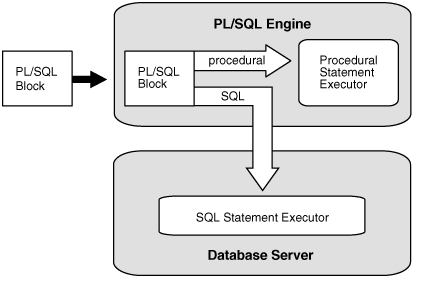PL/SQL, the Oracle procedural extension of SQL, is a portable, high-performance transaction-processing language.
PL/SQL stands for procedural language-structured query language. It is a significant member of Oracle programming tool set which is extensively used to code server side programming. Similar to SQL language PL/SQL is also a case-insensitive programming language.
Advantages of PL/SQL : PL/SQL has these advantages:
PL/SQL combines the data-manipulating power of SQL with the processing power of procedural languages. When you cannot solve a problem with SQL, you can issue SQL statements from your PL/SQL program, without learning new APIs. Like other procedural programming languages, PL/SQL lets you declare constants and variables, control program flow, define subprograms, and trap runtime errors. You can break complex problems into easily understandable subprograms, which you can reuse in multiple applications.
Features Includes :
Architecture of PL/SQL
Basic understanding of the PL/SQL architecture is beneficial to PL/SQL programmers.
PL/SQL Engine :
